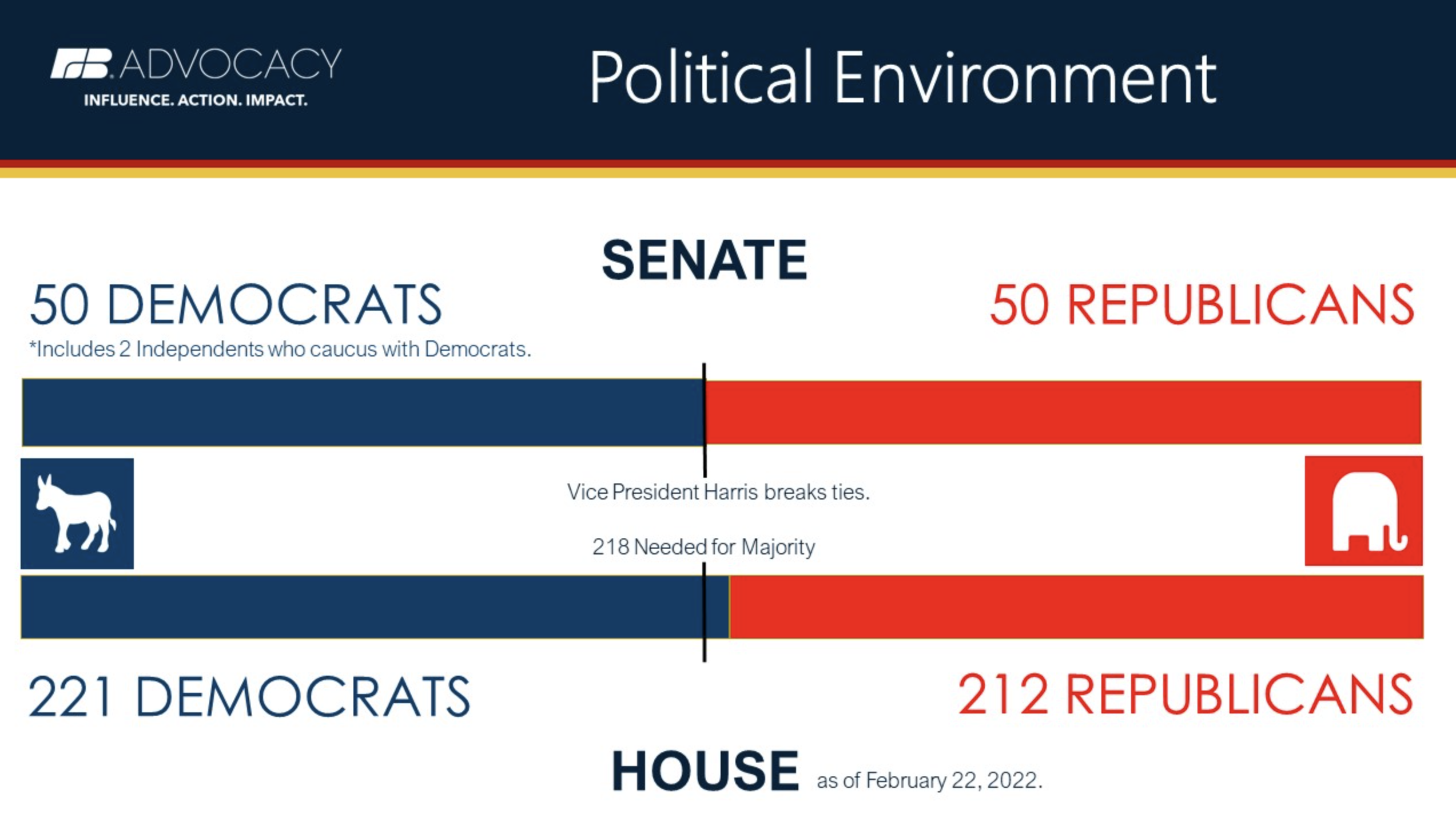State of: Traits and Circumstances
Author
Published
3/8/2022
Through a series of articles we call The State, the American Farm Bureau Federation’s Advocacy and Political Affairs team is providing analysis related to "the state of" various aspects related to advocacy and political trends impacting farmers and ranchers and rural Americans.
Influence, especially political influence, is largely where traits and circumstances meet.
What do I mean? Successful advocacy for Farm Bureau requires both traits and favorable circumstances to be effective. One is within our control, the traits, and the other, the circumstances, is outside our control. Each is required to implement Farm Bureau policy.
Traits, defined as a distinguishing quality or characteristic, are within our control because we can build and strengthen them through the advocacy trainings offered by Farm Bureau. American Farm Bureau Federation has a long history in advocacy training. Our focus is to provide tools and training to help advocates be influential and feel more empowered to engage.
Over my time with AFBF, we have developed various FB Advocacy training programs that will help state Farm Bureaus and members increase their overall effectiveness in grassroots advocacy. In addition to the traditional advocacy training sessions, we focus on relationship-building, in-district advocacy, video advocacy and media training.
Circumstances – such as the political environment and the legislative and regulatory agenda – are out of our control. The political environment is the makeup of Congress and when bills will come to a vote is an important factor in determining the government’s agenda. “What can be passed?” and “when?” are key questions for congressional leaders to decide.
In the current environment, consensus is key. The legislative agenda requires consensus when the Senate is split 50-50 and the House has a small majority of Democrats over Republicans, or vice versa. Congressional leadership must secure passage of legislation with tight margins.

When Congress decides to take up a bill is outside our control, but failure to advocate before Congress is ready to take action likely means a failure to influence the outcome. Having advocates prepared to engage at the right time is within our control – and important for our advocacy success.
It is the unique combination of traits and circumstances that help Farm Bureau be impactful and advocates to be influential.
Like a crop in the field, influence grows with care and timing. The care is the preparation and engagement of grassroots advocates to contact, meet with and influence lawmakers over a period of time, before a bill is being addressed. So, when the timing, or circumstances, are right, Farm Bureau’s advocates have laid the groundwork for influential engagement.
Want more news on this topic? Farm Bureau members may subscribe for a free email news service, featuring the farm and rural topics that interest them most!
